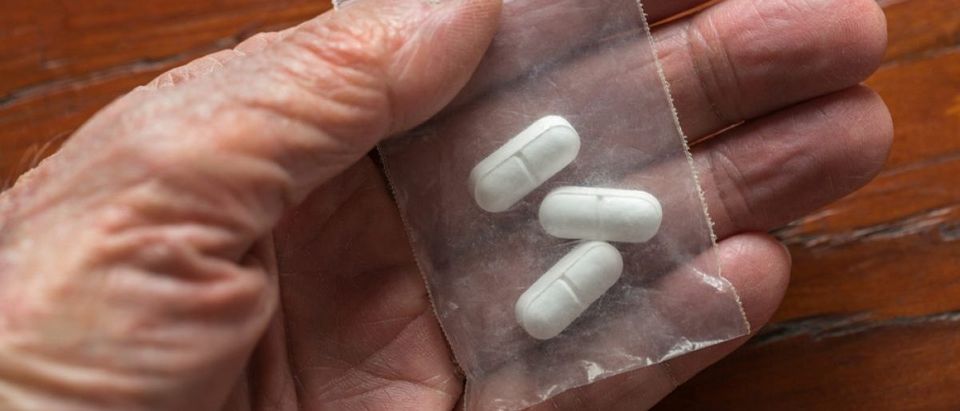The Drug Enforcement Administration (DEA) essentially stopped suspending pharmaceutical distributors that shipped suspicious volumes of opioids even before Congress passed a law effectively eliminating that power, according to testimony before a congressional committee hearing Wednesday.
The DEA issued 65 immediate suspensions against suspicious drug distributors in 2011, but that quickly dropped to just five in 2015, Deputy Assistant Administrator Neil Doherty told the House Committee on Energy and Commerce. The number of suspensions rose to nine after Congress passed a law that made it extremely difficult for the DEA to issue those orders.
“Those started declining before the law was in effect in 2016,” Vermont Democratic Rep. Peter Welch said during the hearing. “The law was not what caused the decline of that tool.” (RELATED: DEA Chief: Pharma-Backed Law Hasn’t Hurt Agency’s Fight Against Opioids)
Welch was one of the Ensuring Patient Access and Effective Drug Enforcement Act’s cosponsors, and received nearly $39,000 in campaign contributions from the pharmaceutical industry. A chart depicting the suspension orders’ decline was displayed while he spoke. (RELATED: Congressman Weakened DEA So Patients Could Get Pain Meds. It Didn’t Really Work.)
“What led to the decline before the law was enacted?” committee chairman Greg Walden, an Oregon Republican, said at the hearing. “Why did the agency stop using that tool or dramatically reduce using that tool?”
DEA officials were facing internal pressure that made it more difficult to issue the suspensions, and were required to present greater and greater evidence to support the orders, a recent Washington Post/”60 minutes” investigation showed. The news outlets also showed that dozens of DEA employees left their jobs for the pharmaceutical industry, who then contacted high-ranking agency officials.
The DEA, in one case, suspended a drug distributor that shipped 11 million opioid pills to a community with a population of 25,000, according to the media investigation. In another, Walgreens pharmacies were selling 1 million opioids in a year — nearly 14 times a typical drug store.
Doherty twice declined to tell the committee that the law was preventing the DEA from responding to the opioid crisis. Instead, he said the DEA was “happy to work with Congress” to ensure “we have the most updated and applicable tools.”
The law required the Department of Health and Human Services, in coordination with the DEA, to release a report in April 2016 on numerous topics surrounding the opioid epidemic, including how effectively the government was combatting illegal prescription painkiller dealing.
Tennessee Republican Rep. Marsha Blackburn, another cosponsor for the bill who received $120,000 from the pharmaceutical industry, questioned why the report was being delayed.
“You’ve heard the frustration from the panel of not getting information from the DEA that we need,” she said, continuing a bipartisan line of questioning from Walden and other committee members about why the agency was stonewalling opioid-related requests from the panel. (RELATED: DEA Could Face Subpoena For Stonewalling Congress In Opioid Fight)
“It’s my understanding that HHS has the lead to this report,” Doherty told her.
The WaPo/”60 Minutes” investigation pegged Blackburn as one of the major supporters of the bill. She recently announced a senatorial bid.
The DEA negotiated the language of the legislation of the bill, according to Doherty.
Follow Ethan on Twitter. Send tips to ethan@dailycallernewsfoundation.org.
All content created by the Daily Caller News Foundation, an independent and nonpartisan newswire service, is available without charge to any legitimate news publisher that can provide a large audience. All republished articles must include our logo, our reporter’s byline and their DCNF affiliation. For any questions about our guidelines or partnering with us, please contact licensing@dailycallernewsfoundation.org.


